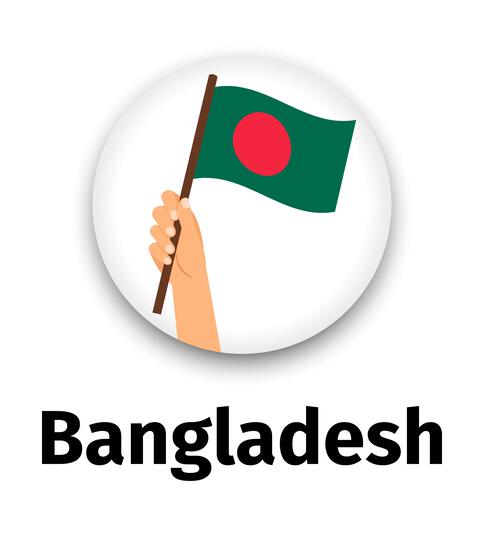Comprehensive Police Reform Proposal
for Establishing a Rule of Law-Based Bangladesh
Introduction: Police reform in Bangladesh is essential to align law
enforcement practices with the constitutional commitment to justice, equality,
and human rights. A modern and reformed police force will ensure
accountability, impartiality, and efficiency, laying the foundation for a
rule-of-law-based state where citizens can trust in fair and unbiased
protection and enforcement.
Goals of Police Reform:
The proposed reform aims to build a police force that is:
1. Friendly
and community-focused 2. Accountable and transparent
3. Free
from political influence and corruption 4. Technologically advanced and
skilled
5. Respectful
of human rights and the rule of law 6. Impartial and loyal to their oath
of service
Framework for Police Reform:
1. Legislative Overhaul:
Introduction of a New Police Act: Replace outdated legislation with a
modern law that ensures police independence, accountability, and adherence to
human rights standards.
Reinforcement of Constitutional Principles: The new act must uphold Articles 7,
27, 31, 32, 44, 102, and 19(1) of the Constitution to maintain the supremacy of
the law and ensure equality, fair treatment, and due process.
Independent Oversight Commission: Establish an independent body
empowered to oversee police conduct, investigate complaints, and ensure
accountability without political interference.
2. Reducing Political Control:
Merit-Based Appointments and Promotions: Ensure that recruitment and
promotions are based on merit, performance, and integrity to reduce political
patronage.
Operational Independence: Limit political influence by creating clear
boundaries between police operations and political directives. The police must
act impartially and independently to enforce laws fairly.
3. Enhancing Police Accountability and Transparency:
Mandatory Body Cameras and Dashcams: Equip officers with body cameras to
document interactions and ensure accountability in public engagements.
Regular Audits and Reporting: Establish mandatory annual audits
and public reports on police operations, arrest records, and the use of force.
Citizen Oversight Panels: Form civilian oversight committees at both national
and local levels to monitor police activity and handle complaints.
4. Combatting Corruption:
Zero-Tolerance Policy: Implement stringent anti-corruption measures, including
mandatory disclosure of assets for police officers and periodic background
checks.
Anti-Corruption Training: Integrate anti-corruption education into police
training programs to emphasize the importance of integrity and ethics in
policing.
Strengthening the Anti-Corruption Commission: Empower the Anti-Corruption
Commission (ACC) to investigate and prosecute police corruption cases swiftly
and effectively.
5. Improving Technological and Technical Capacity:
Modern Crime-Fighting Tools: Equip police units with the latest technology, including forensic tools, surveillance systems, and data analysis software.Comprehensive Training Programs: Regular training on using advanced technology and adopting global best practices in policing.
Cybersecurity and Cybercrime Units: Develop specialized units to address
rising concerns over cybercrime and digital security.
6. Respect for Human Rights:
Adherence to International Standards: Align police practices with
international human rights norms as outlined in treaties to which Bangladesh is
a signatory.
Mandatory Human Rights Training: Introduce human rights training for
all officers to build awareness of the rights of individuals during
interactions and law enforcement.
Protecting the Right to Peaceful Assembly: Uphold citizens' rights to protest
and freedom of assembly, ensuring that force is used only when necessary and
proportionate.
7. Community-Oriented Policing:
Building Trust with Communities: Establish community policing
programs to foster cooperation between police and the public, thereby creating
a supportive environment for reporting crimes.
Community Liaison Officers: Appoint officers specifically tasked with engaging
with the community to understand their concerns and mediate conflicts.
Feedback Mechanisms: Set up channels for citizens to provide feedback on policing
practices and report issues anonymously.
8. Enhancing Efficiency and Reducing Case Backlogs:
Digitization of Records: Implement a nationwide digital case management system
to streamline case handling, reduce delays, and improve transparency.
Specialized Units: Create dedicated units to address crimes based on severity
and type, allowing for specialized attention to complex cases.
Partnerships with Judicial Entities: Work closely with the judiciary to
identify bottlenecks and implement solutions that ensure timely justice.
Challenges to Implementation:
Despite the potential for positive change, there are notable
challenges:
Resistance to Change: Officers accustomed to old practices may resist reform
efforts.
Limited Resources: Initial costs for technology and training may be
significant.
Public Mistrust: Rebuilding public trust requires time and consistent effort.
Political Resistance: Limiting political control may face opposition from
political stakeholders.
Comprehensive police reform is crucial for establishing a
rule-of-law-based Bangladesh. This reform will create an accountable,
transparent, and human rights-compliant police force that can operate
effectively and fairly. The implementation of these proposals, supported by consistent
oversight, community engagement, and legislative changes, will significantly
contribute to a just, democratic, and humanized Bangladesh.
Thank you for considering this proposal
Minhaz Samad Chowdhury
Focuses
on- State Violence against and
Land Rights of
Minorities in Bangladesh.







No comments:
Post a Comment
Please validate CAPTCHA